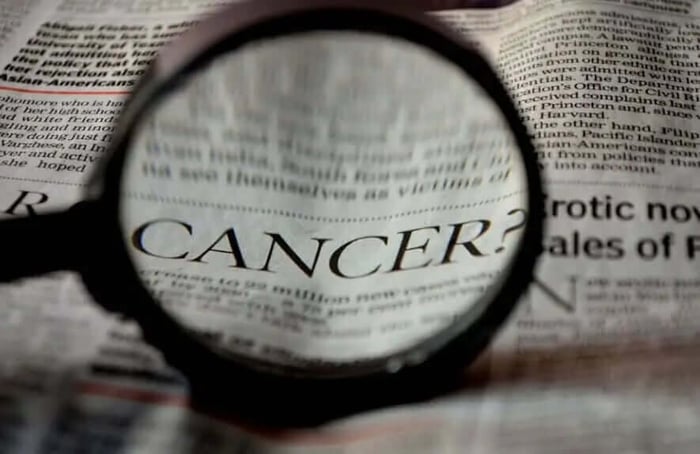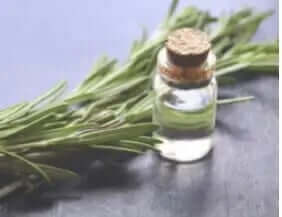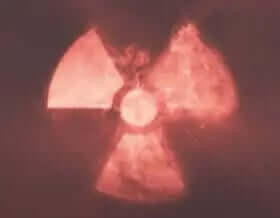Resveratrol: The Revolutionary Compound That Fights Cancer Through Cellular Autophagy
Resveratrol has emerged as one of the most promising natural compounds in cancer prevention and treatment. This powerful polyphenol, found naturally in red grapes, berries, and peanuts, works at the cellular level to combat cancer through fascinating mechanisms that scientists are only beginning to fully understand. Recent groundbreaking research reveals that resveratrol activates autophagy, your body's natural cellular cleaning process, offering new hope for those seeking natural approaches to cancer prevention and treatment.
Understanding How Resveratrol Targets Cancer Cells
The journey to understanding resveratrol's cancer-fighting properties began with surprising discoveries about aging and longevity. When researchers at the National Institute of Health (NIH) made breakthrough findings about a protein called mTOR (mechanistic target of rapamycin), they unknowingly opened doors to understanding how natural compounds like resveratrol could revolutionize cancer treatment.
Three independent laboratories discovered something remarkable: when rodents received rapamycin, a compound that inhibits mTOR, their lifespans extended significantly. This finding sent ripples through the scientific community because rapamycin was already FDA-approved for human use as an immunosuppressant. Even more exciting was the discovery that this life-extending effect worked not just in young animals, but also in 20-month-old mice, equivalent to 60-year-old humans.
The mTOR Connection: Why Resveratrol Works Against Cancer
The relationship between mTOR and resveratrol provides crucial insights into natural cancer prevention. mTOR acts as a master regulator in cells, controlling growth, metabolism, and survival. When mTOR becomes overactive, as often happens in cancer cells, it promotes uncontrolled growth and tumor formation. Resveratrol steps in as a natural mTOR inhibitor, helping restore balance to cellular processes.
Research published in Biochemical Pharmacology demonstrated that resveratrol induces cancer cell death specifically through mTOR-mediated autophagy. This mechanism explains many of the anti-tumor properties that had puzzled scientists for years. The study showed that lung cancer cells treated with resveratrol underwent programmed death through autophagy activation, confirmed by specific protein markers.
Autophagy: Your Body's Cellular Cleaning System
Autophagy represents one of nature's most elegant solutions to cellular maintenance. This process allows cells to digest and recycle damaged organelles, misfolded proteins, and other cellular debris. Think of it as your cells' internal recycling program, breaking down non-functional components and repurposing their building blocks for healthy cellular functions.
When autophagy functions properly, cells maintain optimal health and resist transformation into cancer cells. Resveratrol enhances this natural process, helping cells identify and eliminate potentially dangerous components before they can contribute to cancer development. In some cases, when cells are too damaged to repair, autophagy triggers complete cellular destruction, preventing these damaged cells from becoming cancerous.
Scientific Evidence: Resveratrol's Multi-Target Approach to Cancer
Multiple studies have confirmed resveratrol's effectiveness against various cancer types through different mechanisms:
- Lung Cancer: Research shows resveratrol induces autophagy-mediated cell death in lung cancer cells by inhibiting mTOR signaling pathways
- Breast Cancer: Studies demonstrate resveratrol reduces tumor growth and metastasis through multiple pathways including autophagy activation
- Colon Cancer: Evidence suggests resveratrol prevents colon cancer cell proliferation by triggering autophagic cell death
- Prostate Cancer: Research indicates resveratrol inhibits prostate cancer progression through mTOR suppression
Beyond mTOR: Additional Cancer-Fighting Mechanisms
While mTOR inhibition and autophagy activation represent major mechanisms, resveratrol fights cancer through multiple pathways:
- Antioxidant Protection: Resveratrol neutralizes free radicals that can damage DNA and trigger cancer development
- Anti-inflammatory Effects: By reducing chronic inflammation, resveratrol helps prevent the inflammatory environment that promotes tumor growth
- Apoptosis Induction: Beyond autophagy, resveratrol can trigger traditional programmed cell death in cancer cells
- Angiogenesis Inhibition: Resveratrol prevents tumors from developing new blood vessels needed for growth
- Cell Cycle Arrest: This compound can stop cancer cells from dividing and multiplying
Optimal Resveratrol Dosage and Bioavailability
Understanding how to maximize resveratrol's benefits requires attention to dosage and absorption. While red wine contains resveratrol, the amounts are relatively small, typically 1-2 mg per glass. Research studies often use doses ranging from 150 mg to 1,000 mg daily, far exceeding what dietary sources alone can provide.
Bioavailability presents another consideration. Resveratrol is rapidly metabolized in the body, which can limit its effectiveness. However, several strategies can enhance absorption:
- Take with fat: Resveratrol is fat-soluble, so consuming it with healthy fats improves absorption
- Choose micronized forms: Smaller particle sizes increase surface area for better absorption
- Consider trans-resveratrol: This specific form shows superior bioactivity compared to other forms
- Timing matters: Taking resveratrol with meals can enhance absorption and reduce potential stomach upset
Combining Resveratrol with Other Natural Compounds
Research suggests that resveratrol works synergistically with other natural compounds to enhance cancer-fighting effects. Promising combinations include:
| Compound | Synergistic Effect with Resveratrol |
|---|---|
| Curcumin | Enhanced anti-inflammatory and anti-cancer effects, particularly against smoking-induced cancers |
| Quercetin | Improved bioavailability and enhanced antioxidant protection |
| EGCG (Green Tea) | Amplified autophagy activation and cancer cell death |
| Pterostilbene | Increased bioavailability and prolonged effects |
Real-World Applications: Success Stories and Case Studies
While clinical trials continue to explore resveratrol's full potential, numerous individuals have reported positive experiences using resveratrol as part of their health regimen. Many cancer survivors incorporate resveratrol supplements into their prevention strategies, often reporting improved energy levels, better overall health markers, and peace of mind knowing they're taking proactive steps.
Healthcare practitioners increasingly recognize resveratrol's potential as an adjunct to conventional cancer treatments. Some integrative oncologists recommend resveratrol to patients seeking complementary approaches that support their body's natural defense mechanisms while undergoing traditional therapies.
Safety Considerations and Precautions
While resveratrol demonstrates an excellent safety profile, certain considerations apply:
- Drug Interactions: Resveratrol may interact with blood thinners, NSAIDs, and certain medications metabolized by the liver
- Surgical Considerations: Due to potential blood-thinning effects, discontinue resveratrol before scheduled surgeries
- Pregnancy and Nursing: Insufficient data exists for use during pregnancy or breastfeeding
- Start Low: Begin with lower doses to assess tolerance before increasing
Future Research Directions
The scientific community continues to uncover new aspects of how resveratrol fights cancer. Current research focuses on:
- Targeted Delivery Systems: Developing methods to deliver resveratrol directly to tumor sites
- Combination Therapies: Exploring how resveratrol enhances conventional cancer treatments
- Preventive Applications: Large-scale studies on resveratrol's role in cancer prevention
- Personalized Medicine: Understanding which individuals benefit most from resveratrol supplementation
- Novel Formulations: Creating more bioavailable forms of resveratrol
Incorporating Resveratrol Into Your Health Strategy
Making resveratrol part of your wellness routine requires thoughtful planning. Consider these practical steps:
- Consult Healthcare Providers: Discuss resveratrol supplementation with your doctor, especially if you have existing health conditions
- Choose Quality Products: Select resveratrol supplements from reputable manufacturers with third-party testing
- Monitor Your Response: Keep track of how you feel and any changes in health markers
- Maintain Realistic Expectations: Remember that resveratrol works best as part of a comprehensive healthy lifestyle
- Stay Informed: Follow emerging research on resveratrol to optimize your approach
The Promise of Resveratrol in Modern Health
The discovery of how resveratrol fights cancer through autophagy and mTOR inhibition represents a significant advancement in our understanding of natural cancer prevention. This remarkable compound offers hope to millions seeking evidence-based natural approaches to maintaining health and preventing disease.
As research continues to unveil resveratrol's mechanisms of action, we gain deeper appreciation for nature's sophisticated solutions to complex health challenges. The convergence of traditional wisdom about red wine's health benefits with cutting-edge molecular biology creates exciting possibilities for future therapeutic applications.
Whether you're focused on cancer prevention, supporting conventional treatment, or optimizing overall health, resveratrol presents a scientifically-backed option worth considering. Its multi-faceted approach to cellular health, combined with an excellent safety profile, makes it an valuable addition to a comprehensive wellness strategy.
Frequently Asked Questions About Resveratrol and Cancer
What is the recommended daily dose of resveratrol for cancer prevention?
Research studies typically use doses ranging from 150 mg to 1,000 mg of resveratrol daily. For general health maintenance and cancer prevention, many experts suggest starting with 250-500 mg daily of trans-resveratrol. However, optimal dosing varies by individual, and you should consult with a healthcare provider to determine the right dose for your specific situation. Some studies have used higher doses for therapeutic purposes, but these should only be taken under medical supervision.
Can resveratrol be taken during cancer treatment?
While resveratrol shows promise as a complementary approach, you must consult your oncologist before taking it during active cancer treatment. Some studies suggest resveratrol may enhance the effectiveness of certain chemotherapy drugs, while theoretical concerns exist about potential interactions with others. Your cancer care team can evaluate whether resveratrol supplementation aligns with your specific treatment protocol and help monitor for any interactions.
How long does it take to see benefits from resveratrol supplementation?
The timeline for experiencing benefits from resveratrol varies depending on your health goals. Some people report increased energy and well-being within 2-4 weeks of starting supplementation. However, the cancer-preventive effects of resveratrol work at the cellular level and may not produce immediately noticeable changes. Research suggests that consistent, long-term use provides the most significant protective benefits. Blood markers of inflammation and oxidative stress may show improvement within 8-12 weeks of regular supplementation.
Are there any side effects of taking resveratrol?
Resveratrol is generally well-tolerated, but some people may experience mild side effects, particularly at higher doses. These can include digestive upset, nausea, or diarrhea, especially when taken on an empty stomach. Some individuals report mild headaches or dizziness initially. Resveratrol may have blood-thinning effects, so those taking anticoagulant medications should exercise caution. Most side effects resolve by reducing the dose or taking resveratrol with food.
What's the difference between resveratrol from food sources versus supplements?
Food sources of resveratrol include red grapes, blueberries, cranberries, and peanuts, but the amounts are relatively small. For example, you would need to drink hundreds of glasses of red wine to achieve the resveratrol doses used in research studies. Supplements provide concentrated, standardized amounts of resveratrol, typically in the more bioactive trans-resveratrol form. While obtaining nutrients from whole foods offers additional benefits, supplementation ensures therapeutic doses of resveratrol for those seeking its specific health benefits.
How does resveratrol compare to other natural cancer-fighting compounds?
Resveratrol stands out for its unique ability to activate autophagy through mTOR inhibition, a mechanism distinct from many other natural compounds. While curcumin excels at reducing inflammation and green tea EGCG provides powerful antioxidant effects, resveratrol offers the additional benefit of mimicking caloric restriction at the cellular level. Many integrative health practitioners recommend combining resveratrol with other natural compounds for synergistic effects, as each works through complementary pathways to support cellular health and cancer prevention.
Can resveratrol help prevent cancer recurrence?
Emerging research suggests resveratrol may play a role in preventing cancer recurrence through multiple mechanisms. By maintaining healthy autophagy, reducing inflammation, and supporting proper cellular function, resveratrol helps create an internal environment less favorable to cancer development. Some cancer survivors include resveratrol in their long-term prevention strategies, though more clinical research is needed to establish specific protocols. Always work with your oncology team to develop a comprehensive recurrence prevention plan that may include resveratrol alongside other evidence-based strategies.
Is resveratrol safe for long-term use?
Current evidence suggests resveratrol is safe for long-term use in most healthy adults. Studies lasting up to two years have shown no significant adverse effects at moderate doses. The compound has been consumed in food sources for thousands of years without known toxicity. However, as with any supplement, periodic evaluation with your healthcare provider ensures continued appropriateness. Some experts recommend taking periodic breaks or cycling resveratrol supplementation, though no consensus exists on the necessity of this practice.
Which form of resveratrol is most effective?
Trans-resveratrol is the most bioactive and well-studied form of resveratrol. Look for supplements that specify "trans-resveratrol" content rather than just "resveratrol." Micronized forms offer enhanced absorption, and some products include absorption enhancers like piperine or quercetin. Recent innovations include liposomal resveratrol and other advanced delivery systems that may improve bioavailability. Choose products from reputable manufacturers that provide third-party testing results to ensure purity and potency.
At what age should someone consider taking resveratrol for cancer prevention?
While cancer risk generally increases with age, the cellular benefits of resveratrol can be valuable at any adult age. Many health-conscious individuals begin taking resveratrol in their 30s or 40s as part of a proactive wellness strategy. Those with family histories of cancer or other risk factors might consider starting earlier. The key is establishing healthy cellular function before problems arise. younger adults focusing on prevention might use lower maintenance doses, while older adults or those with higher risk factors might benefit from therapeutic doses under professional guidance.
References:
- Resveratrol and Cancer: Focus on in vivo evidence
- Resveratrol in Cancer Prevention and Treatment
- Spermidine and resveratrol induce autophagy
- Resveratrol-induced autophagy in human cells
- Resveratrol inhibits mTOR signaling
- Resveratrol and autophagy in cancer cells







